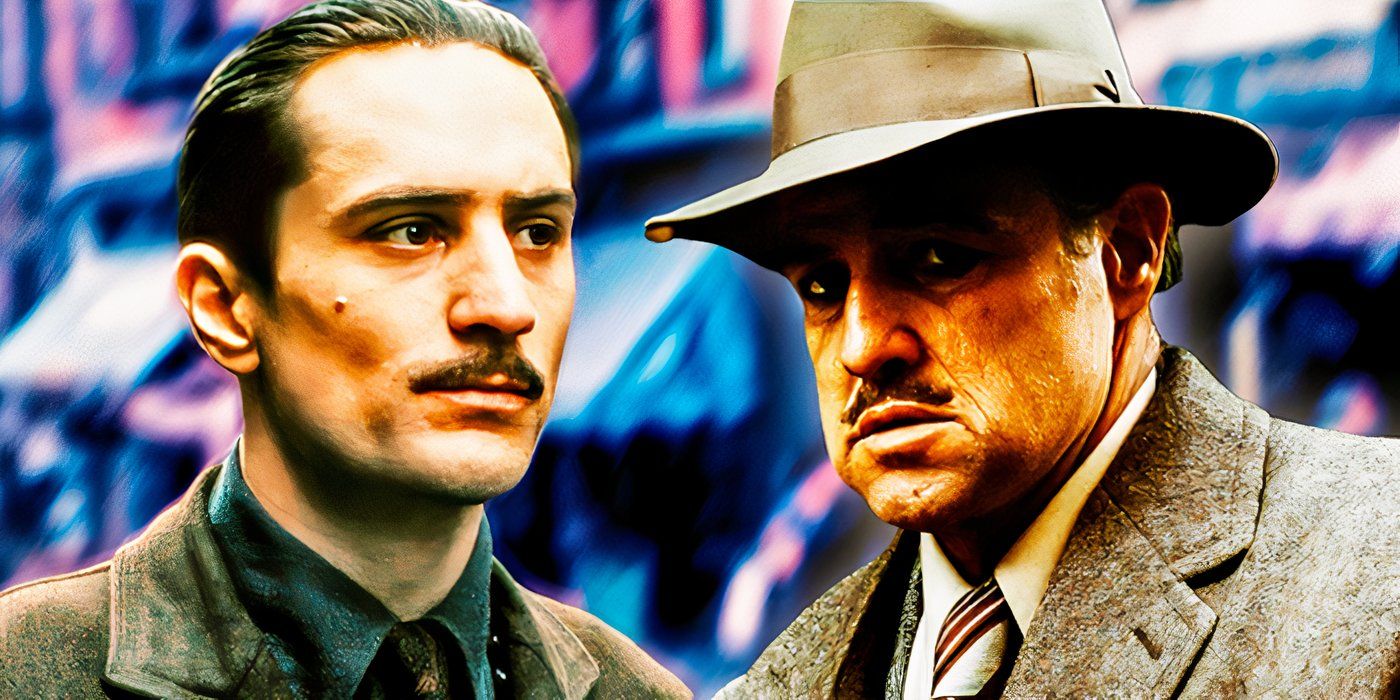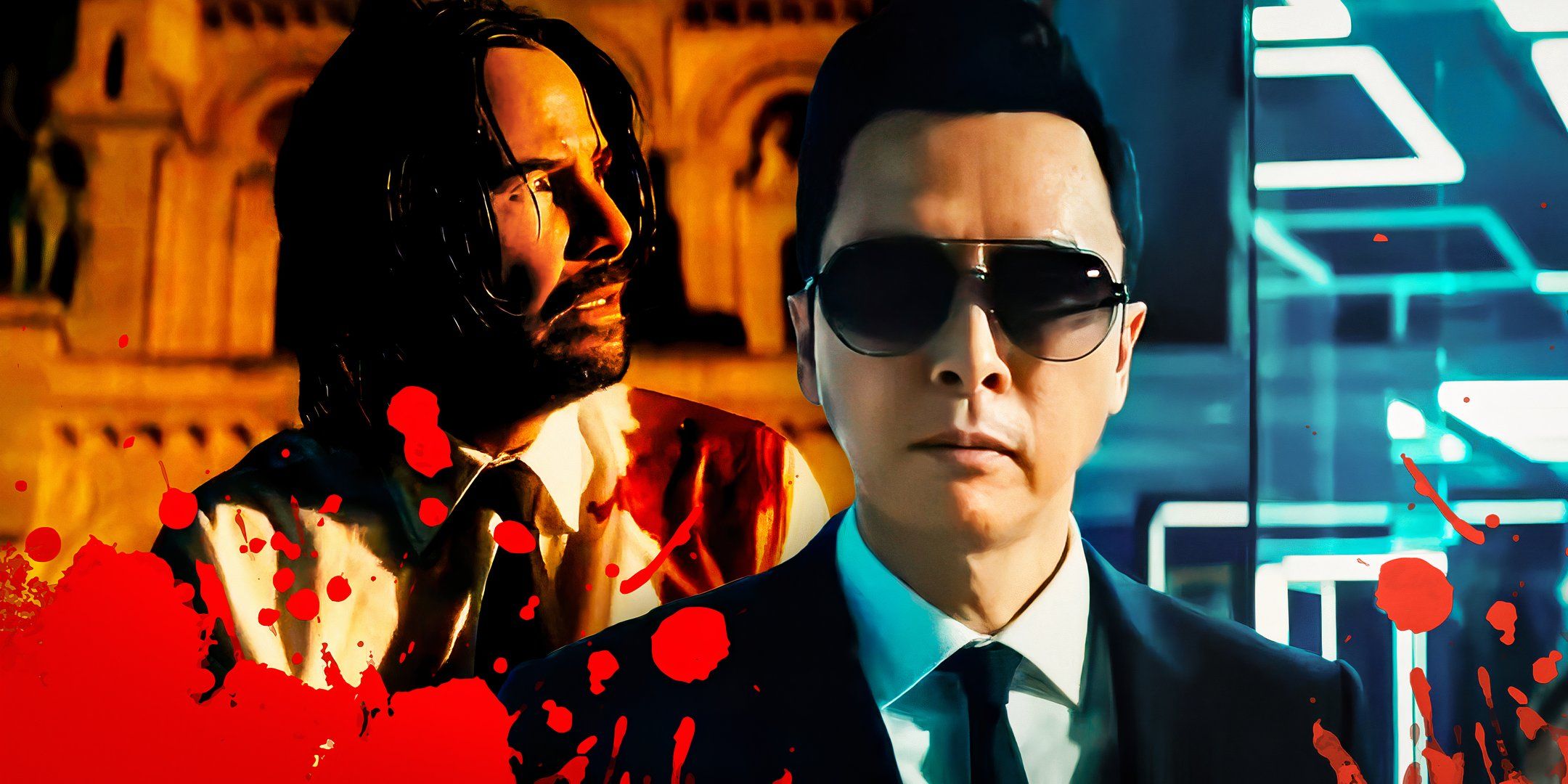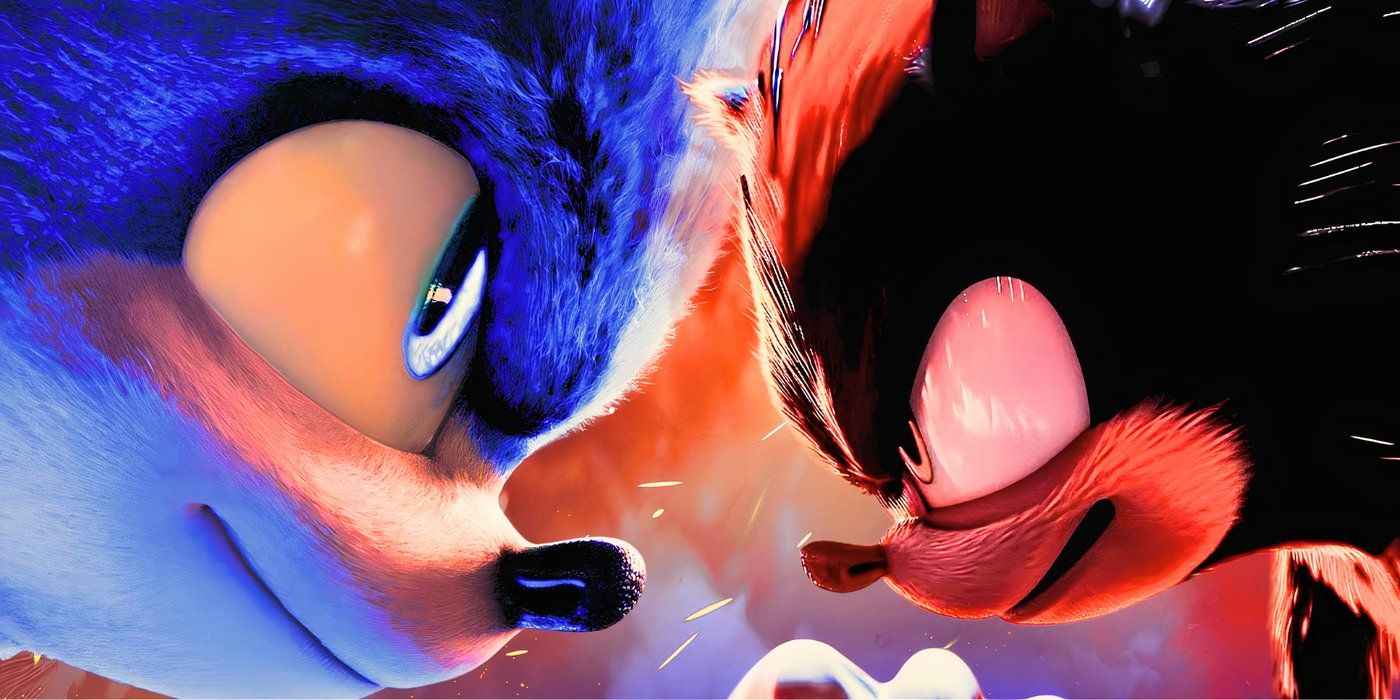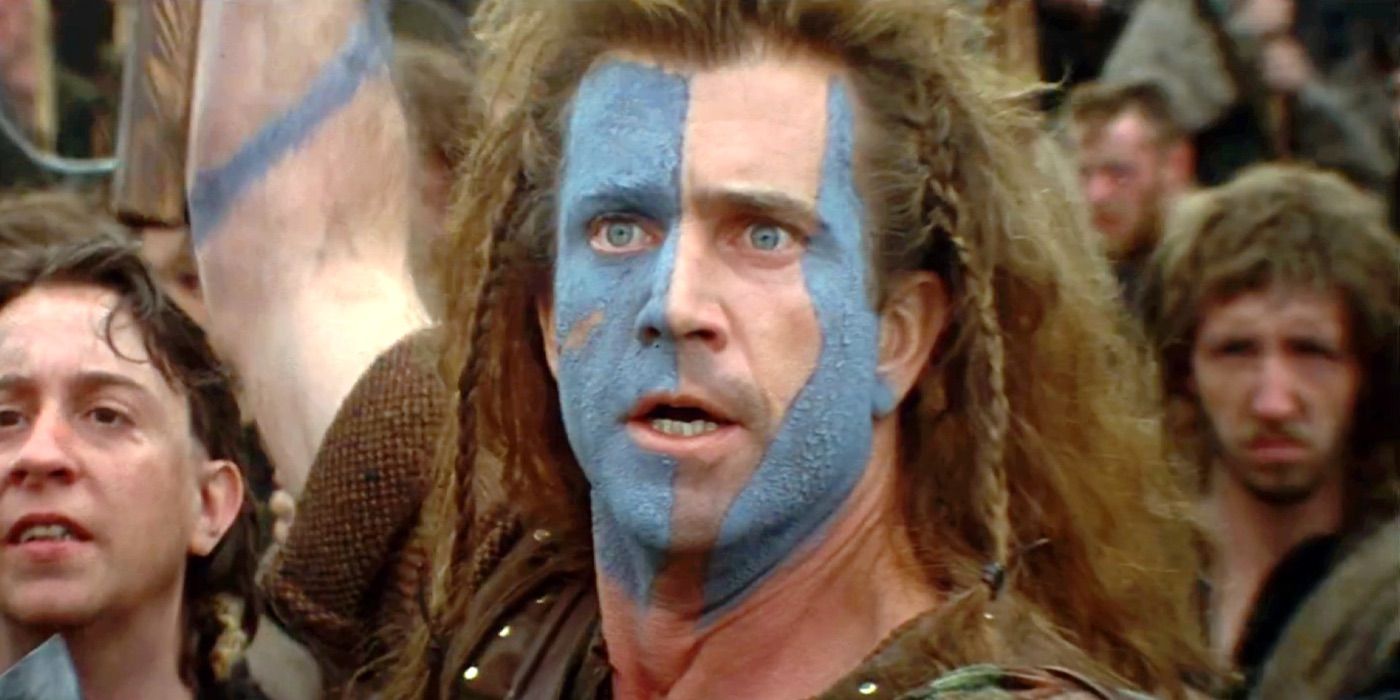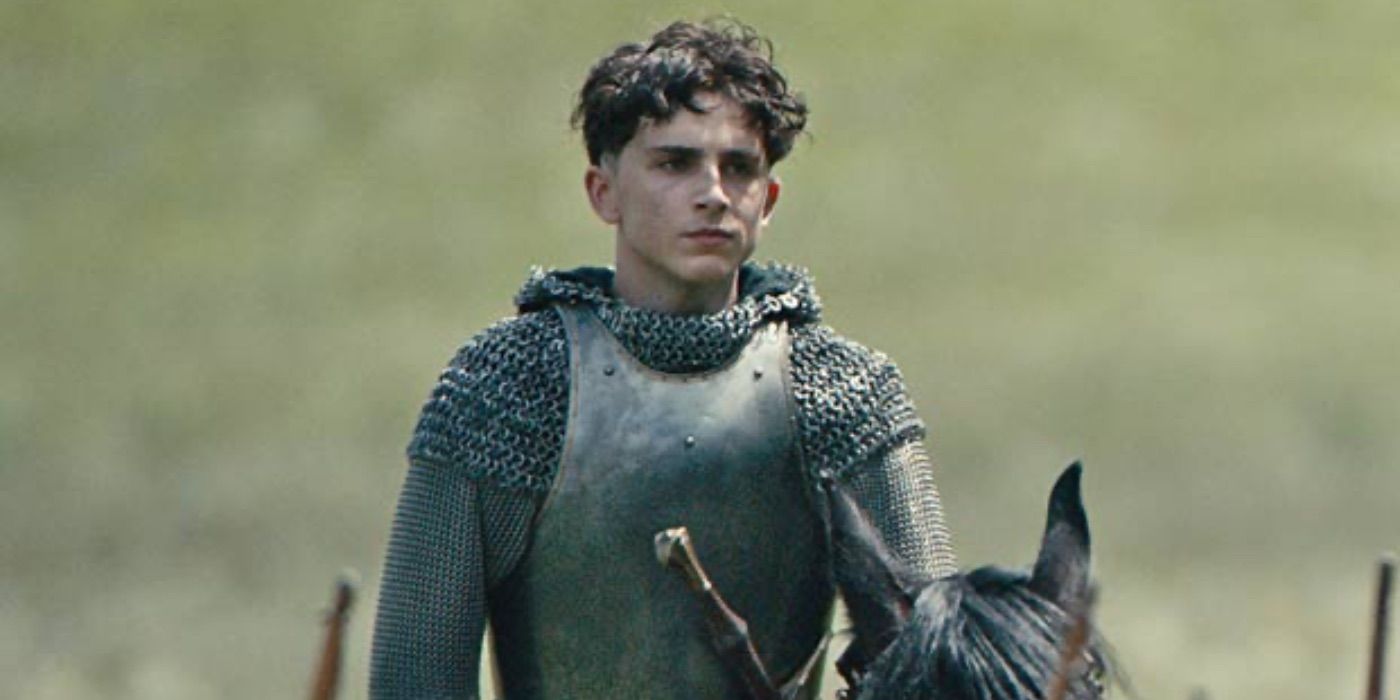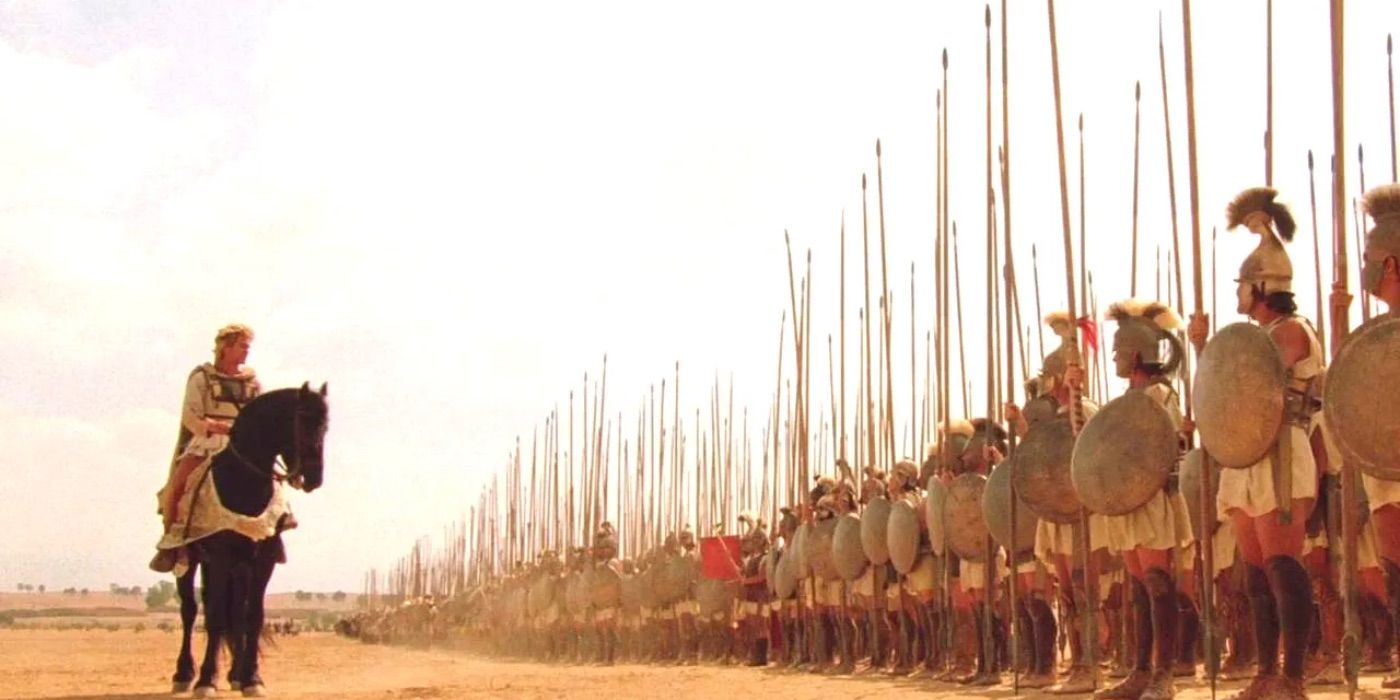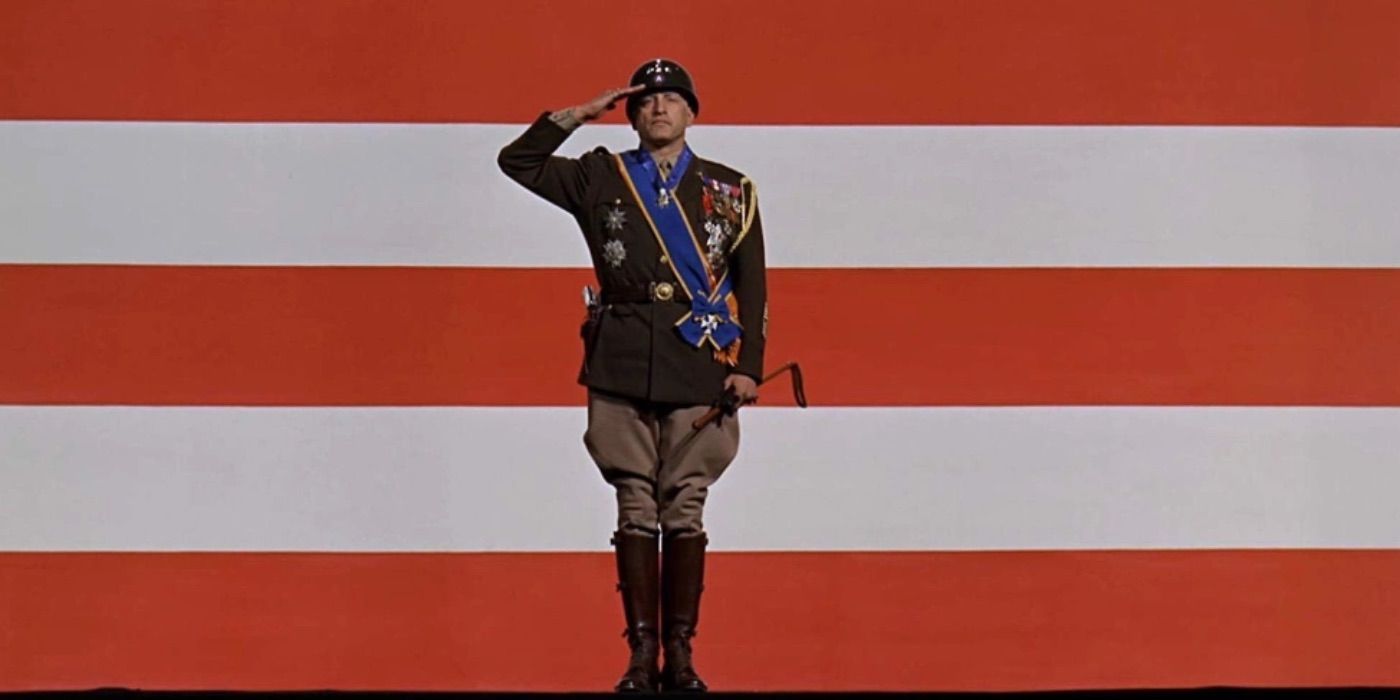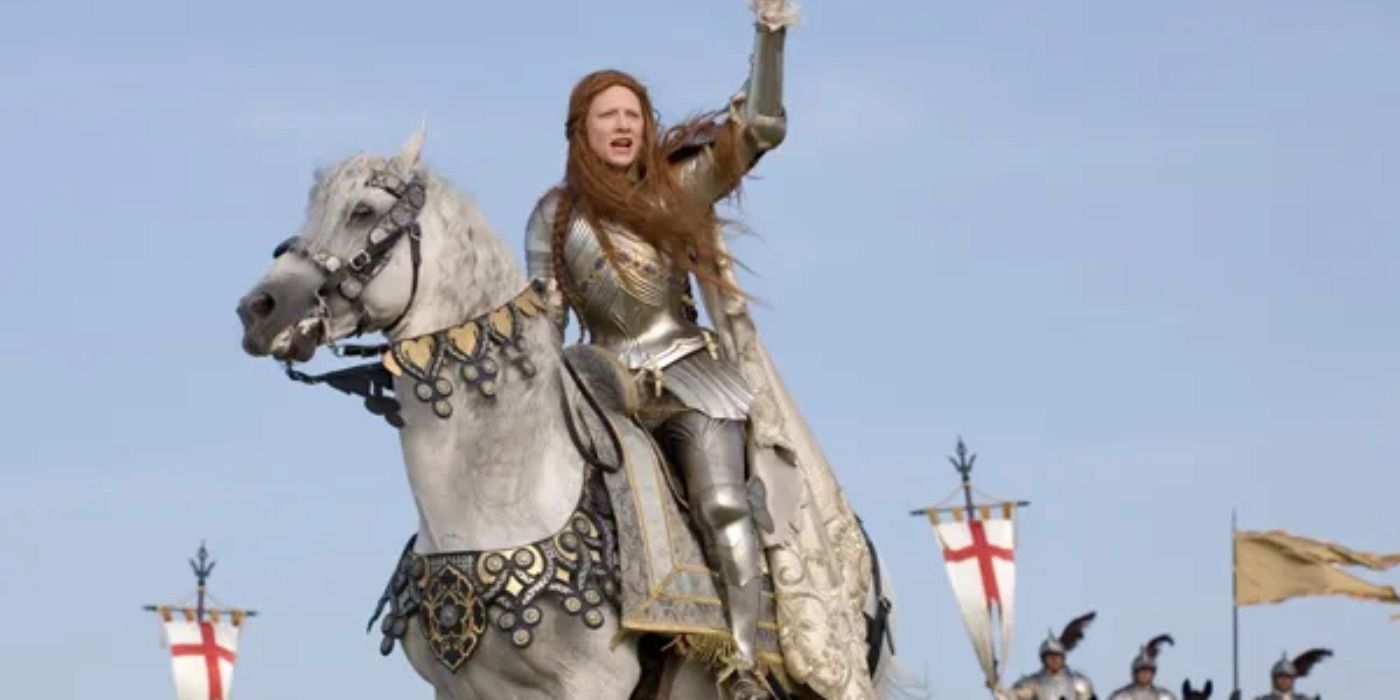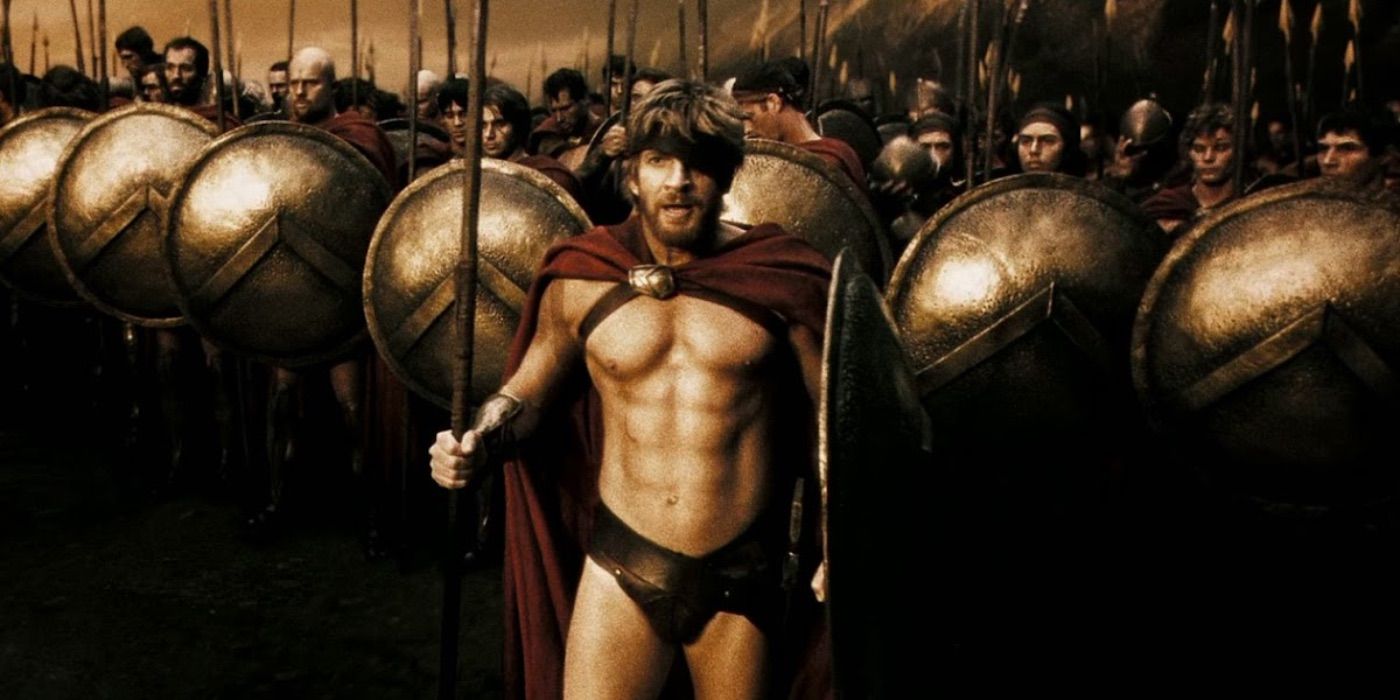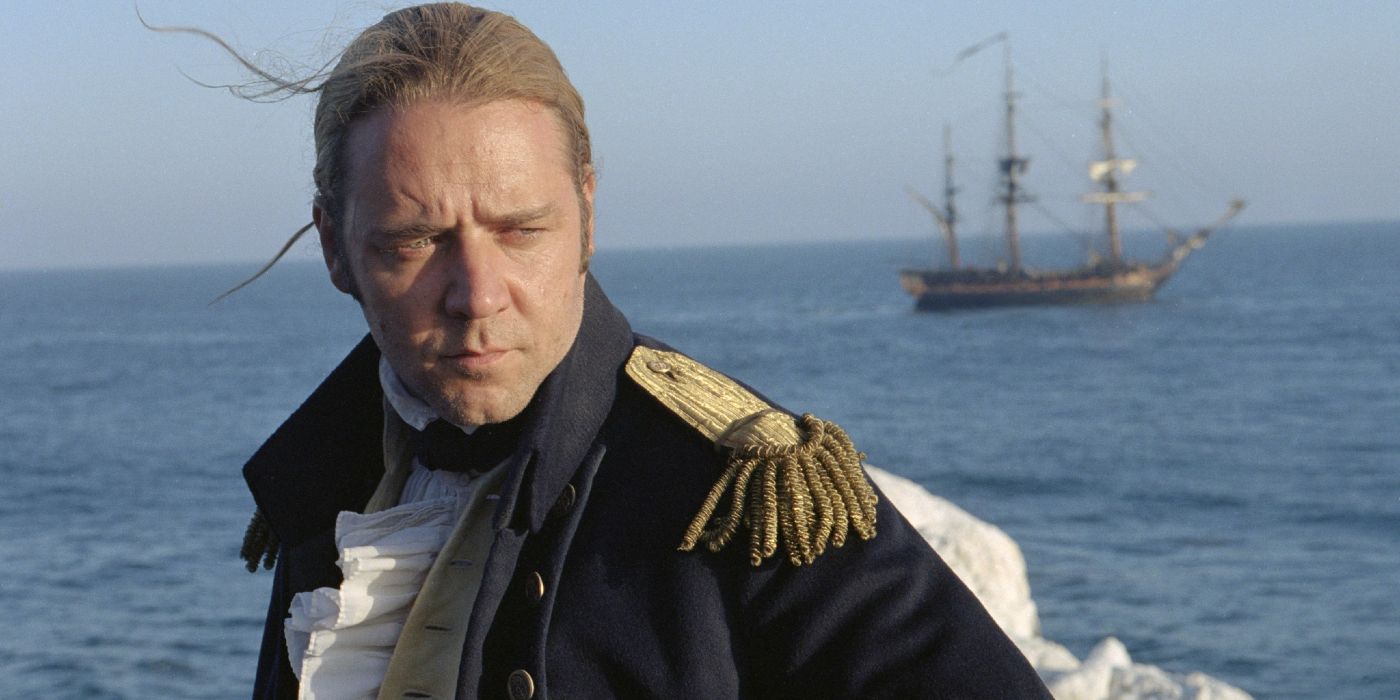Summary
- Pre-battle speeches in war movies reveal the true nature of leaders and their relationship with soldiers, inspiring courage and loyalty.
- Ancient war movies often feature pre-battle speeches due to scheduled battles, while modern wars have more spontaneous battles without time for prepared remarks.
- The best pre-battle speeches in war movies are impactful due to the weight of the context, and the speeches can live long in the memory of viewers.
War movies often feature calm moments before their epic battles when military leaders have the chance to deliver unforgettable speeches. These moments show the true nature of a leader, and the relationship they have with their soldiers. The main goal of a pre-battle speech is to inspire the soldiers to take courage against their enemies. If an army has an intense loyalty to their leader, this is the time they will show it. These quieter scenes provide a contrast to the chaos and carnage of battle. They show a more human side, which can heighten the emotion of the conflict.
Most pre-battle speeches like this take place in movies about ancient warfare. War in the ancient world was more scheduled, so armies knew when to expect battle, and could prepare accordingly. In more modern wars, battles can break out more spontaneously, so there's no time for prepared remarks. However, movies about wars in the 20th century still feature some memorable speeches from leaders addressing their troops in a slightly different context, before deployment, for example. Battle speeches in war movies are always fascinating due to the weight of context surrounding them, and the best speeches can live long in the memory.
10 King Henry V Before The Battle Of Agincourt
The King (2019)
He delivers a rousing speech which shows that he has finally taken to his role as king.
Timothée Chalamet plays a young King Henry V in one of his most commanding performances to date. The historical war biopic, loosely based on Shakespeare's plays, follows King Henry's uneasy start to his reign, as he is thrust into a war with France. Before the Battle of Agincourt, he delivers a rousing speech which shows that he has finally taken to his role as king. He tells his soldiers to fight for a united England, and that any one of them may die, including himself. His speech is so powerful because he backs it up with his actions, staying in the heart of the battle until the bitter end.
9 Alexander The Great At The Battle Of Gaugamela
Alexander (2004)
Alexander has been praised by historians for its accurate depiction of ancient battle, and the Battle of Gaugamela is the most epic conflict in the movie. The battle took place in modern day Iraq, as Alexander the Great sought to conquer the Achaemenid Empire. In Alexander, Collin Farrell plays the Macedonian king, and he gives a very unusual speech to his men. Rather than speaking to the army as a whole, he singles out a few individuals and shares memories about their brave exploits. This proves his close bond with his soldiers, and it shows them who they are fighting for as a collective.
8 General Patton Addresses His Troops
Patton (1970)
Patton begins with General George Patton, one of the most important American generals in World War II, giving a speech to an unseen audience. The camera stays fixed on Patton, although he is utterly dwarfed by an enormous American flag. This framing choice highlights the sentiment of his speech, that the country is more important than any one man. In his speech, Patton claims that winning is so ingrained into the American ideology that the country will never lose a war. It's a very unorthodox speech. Usually, speeches in war movies hope to inspire courage, but Patton says that losing is simply not an option.
Screenwriters Francis Ford Coppola and Edmund North had to tone down some of Patton's language to avoid an R rating, but the speech is otherwise very accurate.
7 Winston Churchill Speaks To The Nation
Darkest Hour (2017)
Gary Oldman's masterful portrayal of Winston Churchill in Darkest Hour features a few speeches. Churchill was known as a great orator, and Oldman's performance has the same composure and gravitas. Of all Churchill's speeches in Darkest Hour, his first address to the nation is the most impactful. He makes a radio broadcast from a small room, and must draw the requisite energy without a live audience. Still, he manages to summon incredible fortitude to capture the minds of the British public, stating that Britain will not surrender to Germany. Darkest Hour's historical accuracy is somewhat questionable, but Oldman's performance is a resounding success.
6 Aragorn At The Black Gate
The Lord of the Rings: The Return of the King (2003)
Aragorn arrives at the Black Gate of Mordor with the hope of distracting Sauron from Frodo for long enough to allow the hobbit to enter Mount Doom. He gathers his troops and delivers a speech that lays bare the dire situation they are in, but he displays an unshakable resilience. He tries to inspire the same bravery in his men, saying that although their courage may falter in the future, "today is not that day." This moment marks the final stage of Aragorn's long journey to becoming king, not just in title but in stature. With his army completely surrounded, he shows no fear at all.
5 Queen Elizabeth I At Tilbury
Elizabeth: The Golden Age (2007)
Queen Elizabeth gave her most famous speech at Tilbury, as she rallied her troops in preparation for the Spanish Armada. Elizabeth managed to command the respect of her army even during a time of extreme gender discrimination. In Elizabeth: The Golden Age, Cate Blanchett delivers the speech in a full suit of armor, ready to ride into battle with her men. The words of the speech are slightly altered from the real version, but it still carries the same sentiment. Elizabeth expresses that together, the army form an indomitable collective, and she emphasizes this by saying she herself is willing to live or die alongside her men.
4 Dilios' Rallying Cry At Plataea
300 (2007)
Following Leonidas' death, Dilios galvanizes the Spartan troops before they take on Xerxes' army at Plataea. His speech starts off very quietly, almost as if he is recalling the brave feats of Leonidas and the 300 for his own benefit, but he soon builds his energy and shouts to his entire army. 300 is full of incredible quotes, and Dilios' climactic speech is no exception. He acknowledges that the Spartans are outnumbered, but he also knows that they are inspired by the courage of the 300, and their numerical disadvantage doesn't count for much. He says "The enemy outnumber us a paltry three to one; good odds for any Greek."
3 Captain Jack Aubrey Prepares His Crew
Master and Commander: The Far Side of the World (2003)
He doesn't need to raise his voice at all, and this gives him a palpable air of confidence.
Master and Commander: The Far Side of the World follows the crew of a British ship, the Surprise, as they chase down a French privateer, the Acheron. As the crew prepare for an assault on the Acheron, Captain Jack Aubrey prepares his crew with a speech that reminds them of their responsibilities while also giving them courage. There are no generic calls for bravery. Instead, Aubrey trusts his men explicitly, and he gives them intricate technical instructions. Nevertheless, the crew are clearly captivated by his speech. He doesn't need to raise his voice at all, and this gives him a palpable air of confidence.


